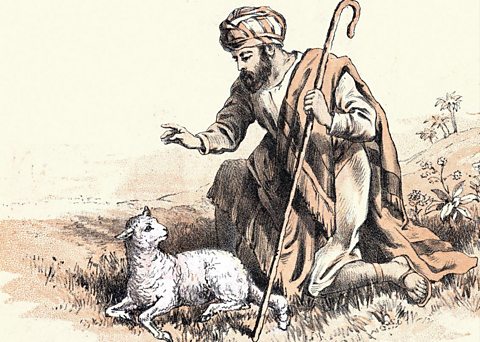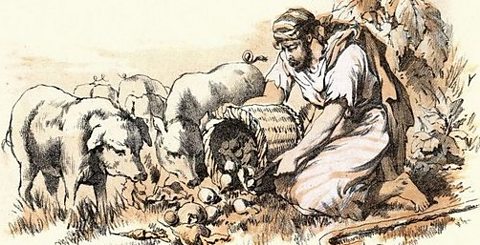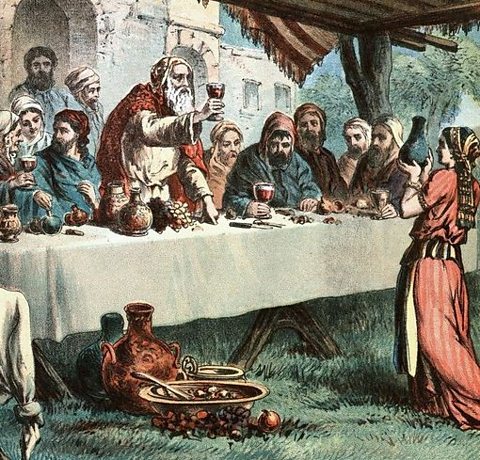Parables of the lost

Luke in his GospelThe four Gospels in the Bible - Matthew, Mark, Luke and John - are in the New Testament. They tell of the life, ministry and death of Jesus. gives us a trilogy of lost parables. The Lost sheep, the Lost coin, and the Lost son.
The lost sheep wander off and get lost. The coin is lost by someone, and the son chooses his lost-ness and defiance.
The interesting thing about a sheep and a coin is that both those things could hardly help it when they got lost but the son chose it.
Luke highlights in these parables that Jesus cares about lost things and lost people.

Why did Jesus tell this parable?
The Prodigal Son or Lost son as it is often to referred to, is one of the most famous parables in The BibleThe holy book of Christians. It has 66 books split into two sections: Old Testament and New Testament..
Jesus told the parable in response to the Pharisees' complaint:
"This man welcomes sinners and eats with them" (Luke 15 v 2).
He wanted his followers to know why he chose to associate with sinners.
- The parable begins with a man who has two sons.
- The younger son asks his father for his share of the family estate as an early inheritance.
- The son immediately sets off on a long journey and begins to waste his money on wild living.
Parable of the Lost Son: This clip is from the is from the 2013 │╔╚╦┐ý╩Í Two programme, The Bible: The New Testament

His money runs out, a severe famine hits the country, and he finds himself hungry, living in terrible conditions, forced to feed pigs and longing to eat some of the food they had.
He realises his fatherÔÇÖs servants live in better conditions than him so he decides:
ÔÇ£I will set out and go back to my father and say to him: Father, I have sinned against heaven and against you. I am no longer worthy to be called your son; make me like one of your hired servants.ÔÇØ (Luke 15:18-19)
- The father sees him from a distance and runs out to meet him.
- He welcomes his son back with open arms.
- The father orders a huge party to celebrate his son's return.

The older brother's resentment

The older son is furious when he hears of the party and refuses to go.
He worked every day in his fatherÔÇÖs fields, and he got no thanks.
His brother wasted everything, brought shame to the family name and the father celebrates him in the highest way possible, killing the fatted calf.
The father tries to calm his eldest son by saying:
ÔÇ£ÔÇÿMy son you are always with me, and everything I have is yours. But we had to celebrate and be glad, because this brother of yours was dead and is alive again; he was lost and is found.ÔÇÖÔÇØ (Luke 15 v 31-32)

What lessons can be learned from the parable?

In this parable there is:
A father representing God the Father.
A younger son representing people who do their own thing and disobey GodÔÇÖs commands.
An older son representing people who obey GodÔÇÖs commands out of duty and grow bitter.
The parable teaches that God always forgives people who realise they have made a mistake. He welcomes all people, no matter what they have or have not done, with open arms.
The father instantly forgives the younger son and welcomes him back into the family, throwing a party when he returns.
The younger, lost, or prodigal son was ÔÇÿdeadÔÇÖ before, not literally but because his soul was dead to God. Now through returning to GodÔÇÖs love his soul is brought back to life.
The older son is angry. He has been a faithful son, honouring and obeying his father.
But the message is clear: just as the father tells his elder son that ÔÇÿÔǪyou are always with me, and all that is mine is yours.ÔÇÖ (15:31), so God the father respects and values those who are always close to him and follow his commandments.

Quiz time!
More on Revelation of God
Find out more by working through a topic
- count12 of 12

- count1 of 12

- count2 of 12

- count3 of 12
